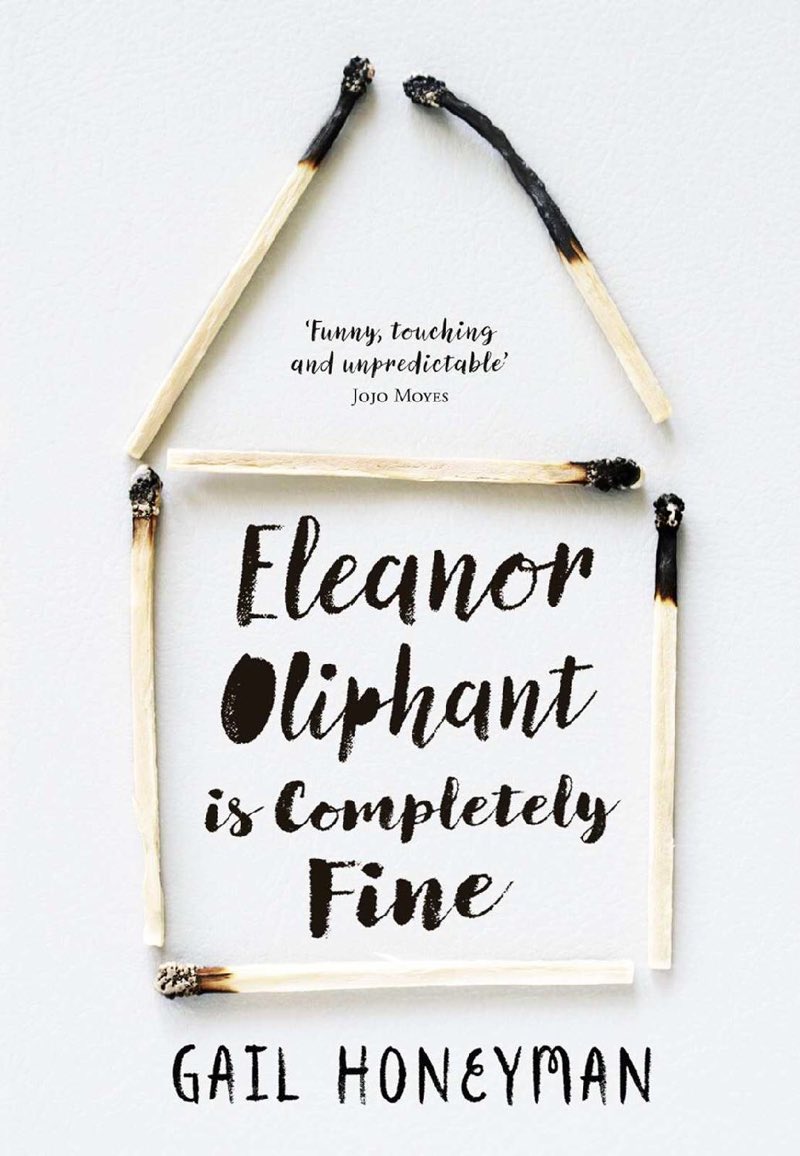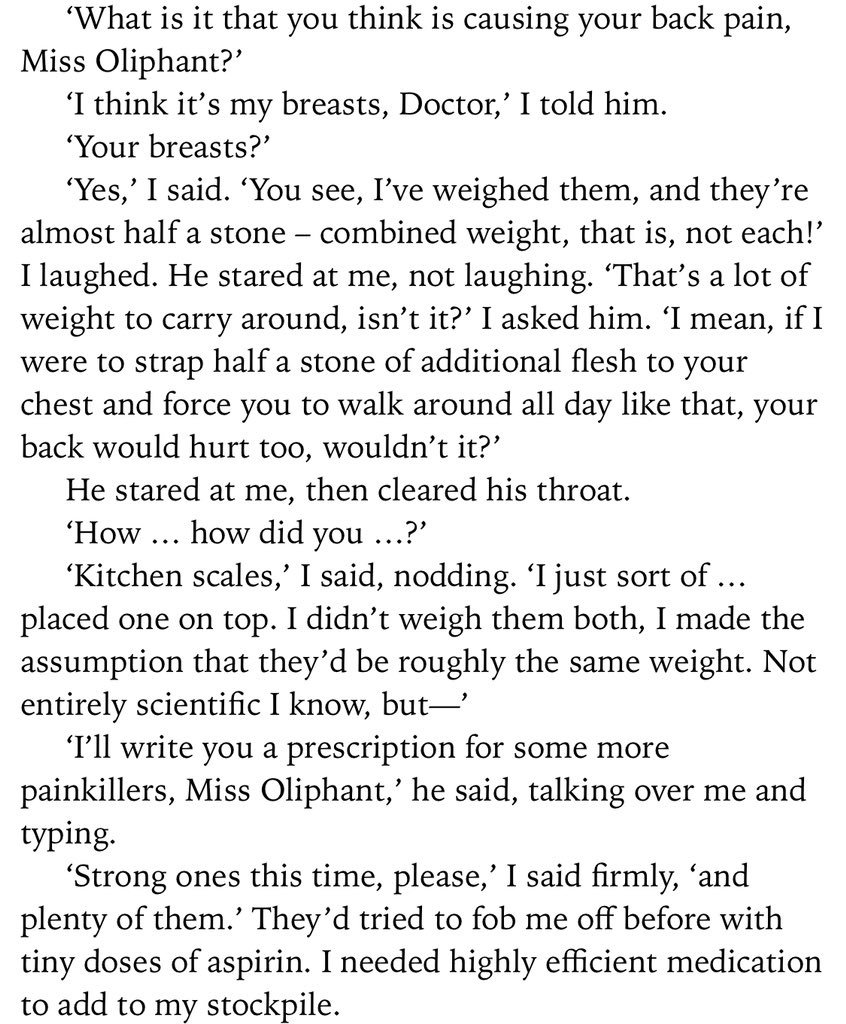tl;dr
A sensitive, funny and daring portrayal of trauma that, while flawed, serves up the memorable Eleanor Oliphant.

opening remarks
And now for my second Costa ‘Best Debut’ novel: Eleanor Oliphant is Completely Fine by Gail Honeyman. This is a book I bought when it came out planning to read it almost immediately. Of course, that didn’t bloody well happen, did it. Other shiny books caught my attention. The Costa judges have therefore done me the favour of nominating it. If they’d only nominated the 73 other books I’ve bought and haven’t gotten around to reading. [Actually, they did… well not all 73… but Xan Brooks novel is also on my digital pile].
knee-jerk observations
I’m not a massive fan of the lonely, unloved, spinster-ish woman trope. Not because it doesn’t reflect reality, or that I expect all women in my fiction to be beautiful, empowered and shagging all the men, but because I think it limits story-telling. Books like these, yes I’m generalising, are either miserable or they poke fun at the angst and anxieties of the main character. It’s too early to tell which direction this novel will take or if it will do something completely different with the trope. I am intrigued and horrified though at Eleanor’s state when she turned up for her interview:







On the one hand, I do like how Honeyman has dropped hints about Eleanor’s traumatic past. A sentence here, a suggestion there. On the other hand it’s been clear to me that Eleanor wasn’t an only child and that her sibling died… possibly in the fire that’s briefly referred to and indicated by the burnt matches on the cover. Look, I could be wrong or it might be worse than I’m imagining – maybe Mummy had a penchant for kidnapping and brutally murdering children. Whatever the case I am getting a little antsy – at the halfway mark – waiting for the other shoe to drop.
Magners should be paying Gail Honeyman for product placement. Eleanor’s alcohol of choice (when vodka’s not available):


the gist of it
Eleanor Oliphant is Completely Fine – coming to a big screen near you likely starring Reese Witherspoon – is a very good if flawed novel.
The very good is the depiction of Eleanor. It would appear, initially, that Honeyman is poking fun at Eleanor, with her quirks, neuroses and affectations. But we soon discover that her nature is a product of her upbringing. She is a traumatised woman who has found isolation as means of dealing with her painful past, a past she has cauterised from her memories. The beauty of the novel and Honeyman’s portrayal of Eleanor is the way she begins to slowly and gradually open herself up to the world. While some of that sense of discovery is awkward and a little cringey, it’s also authentic. Her reason to learn is
My quibble, though, is the trauma at the centre of the novel. While I liked the hints and suggestions it takes far too long for the truth to be said out loud. The two major reveals in the last third are easy to pick, especially the final ‘twist’ and this makes for frustrating reading. I have no issue with Eleanor piecing together and coming to terms with the truth but it takes so long to get there that when those reveals happen the impact is lost, at least for me. Eleanor’s final conversation with her mother is a case in point – a rushed rather than a cathartic scene.
Still, I have to credit Gail Honeyman for mostly avoiding the pitfalls of the “lonely woman” trope. Any poking fun at the expense of Eleanor and her strangeness is gentle rather than mocking. While I might have an issue with how the tragedy at the heart of the book is revealed its impact on Eleanor, how she deals with the pain, is handled with great sensitivity and compassion. It’s clear that Gail Honeyman loves Eleanor and so will you.
0 Comments